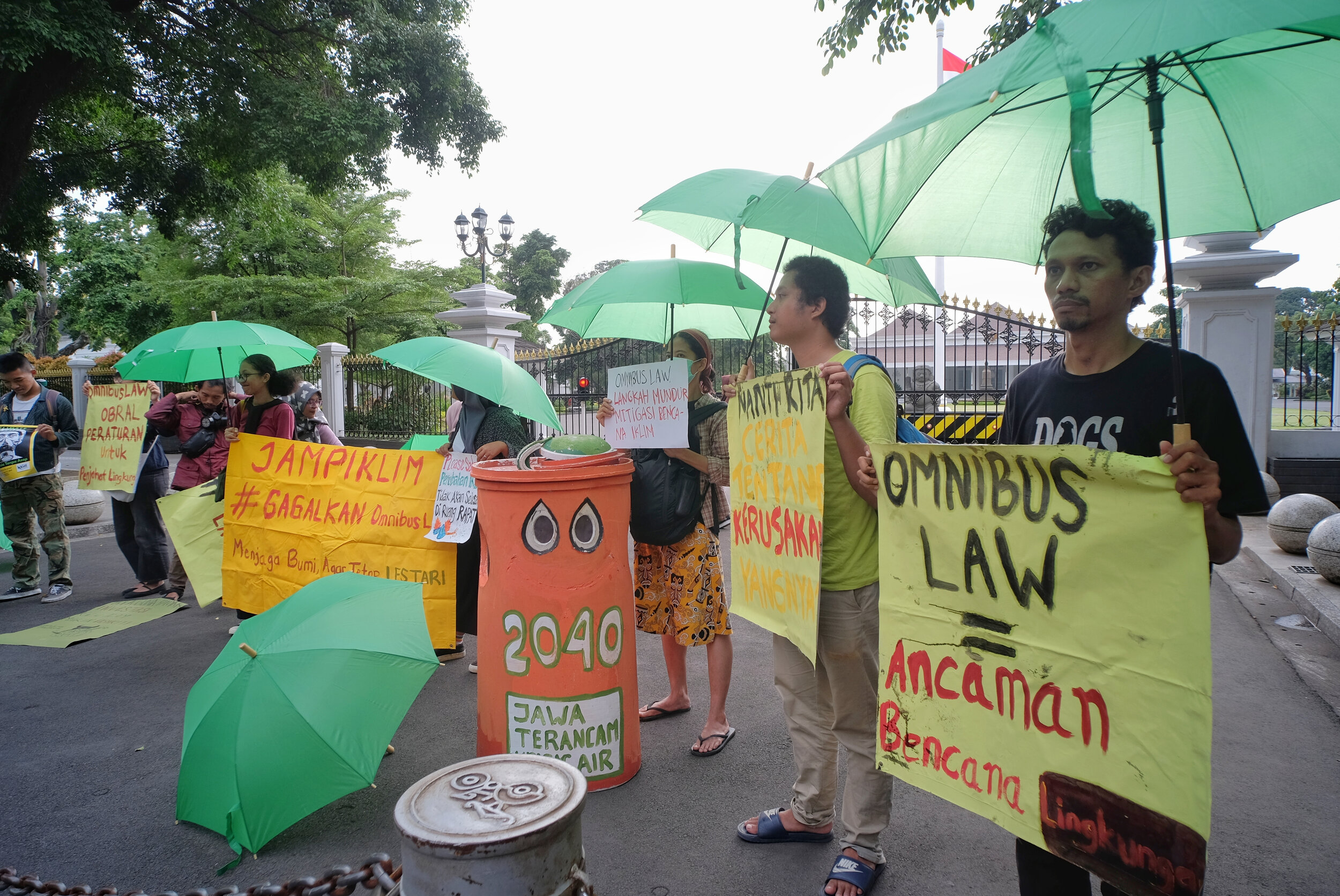Are freelancers fully aware of the Job Creation Bill?
Read in Indonesian
Images: Shutterstock
The government is striving to attract foreign investors to create jobs in Indonesia in order to drive the national economy so that it would able to compete with other countries, especially in Southeast Asia.
The Omnibus Bill on Job Creation is expected to make Indonesia an investor-friendly country. However, reality says otherwise, because the articles in the bill could harm workers.
One of the potential issues exists in the revision to Article 56 in Law No.13/2013 on Manpower, which regulates the end of term or the end of a certain job, as well as the omission of Article 59 in the same law which regulates working agreement for a specific period, including the maximum working and overtime hours and contract extension for contract workers. (As explained in the first part of the Omnibus Law series).
Statistics Indonesia reported that as of February 2020, 74.04 million people (56.50%) were working in the informal sector, up 0.77% from that in the previous year. The planned revision to Article 56 and omission of Article 59 will threaten the well-being of contract workers and freelancers who work under Work Agreement for Specified Time.
Article 10 of Manpower and Transmigration Ministerial Decree No.100/2004 stipulates that for certain jobs changing in terms of time and volume of work and wages are based on attendance (less than 21 work days in a month), it can be done by contract or daily work freelance.
Freelancer is an individual who works alone, not under any companies, and not bound by long-term contracts. Freelancers usually only work in one particular project and can often be found in the creative sector, such as writer, fashion stylist, as well as graphic designer.
Companies more efficient, what about workers?
The Job Creation Bill also revokes Article 66 in the Manpower Law, which regulates, among other things, the scope of work of outsourced workers. Article 66 prohibits companies to utilise outsourced workers to carry out their enterprises’ main activities or activities that are directly related to production process.
The omission of Article 66 in the Job Creation Bill means that the scope of work of outsourced workers is expanded. As a result, outsourced workers will have even smaller opportunity to become a permanent employee.
Muhammad, a digital marketing senior staff at a startup company that often uses the service of freelance writers, admitted that using freelance services is deemed more effective than looking for a contract worker, let alone a permanent worker. That is because the employee recruitment process takes more time and higher human resources investment than the “pay per project” system.
He added that the payment process for freelance works is the same with other vendors—done after the service/product/project is completed. Freelancers will only be paid according to their work. They do not receive facilities enjoyed by permanent employees, such as health insurance and severance pay.
The Job Creation Bill will only benefit companies and investors, because this regulation allows them to “save” expenses without having to take into account employee well-being.
If this bill is passed into law, workers’ well-being will be at risk because contract workers will lose their chance to become a permanent worker. They are also at risk of being treated as freelancers.
Freelancers unaware of impacts of Job Creation Bill on their job
Unfortunately, many informal workers, including freelancers, haven’t yet understood the impacts of the Job Creation Bill on themselves and their jobs.
All three freelancers who have worked with startup firms and agencies in an interview with TFR don’t fully understand the impacts of this bill as well as their rights and obligations as freelancers.
Dwi, 25, freelance influencer manager, admitted that she only knows that the Job Creation Bill will harm contract workers. She hasn’t learned about the bill’s impact on freelancers such as herself.
Esa, 30, freelance photographer said that he usually works based on gentlemen’s agreement (informal agreement and not legally binding—usually unwritten) or based on friendship, not spelled out in black and white.
Ahmad, 27, freelance writer, revealed that when working with a brand, he always confirms the content of the Work Agreement Letter. Some companies also asked him to sign a confidentiality agreement. However, the most important thing is the agreement regarding the time and amount of the payment. He acknowledged that he hasn’t fully understood the Manpower Law and other similar regulations.
It is time for freelancers to understand their rights and obligations stipulated in the law, because there are many cases where freelancers fell victim to defaults. On the contrary, there are also many freelancers who feel that they don’t have the obligation to report their tax.
Freelancers must understand their rights and obligations
According to Anugrah Aditya, a lifestyle influencer, a freelancer must be aware of the value of his/her job and develop a more mature thinking just as if they’re running a company.
Aditya went as far as to ask his friend who works as a lawyer to help him be more thorough in every work agreement signing with his client.
He knows that not every company pays tax from his service. As a solution, the price quoted for his services has included tax.
A freelancer must think in a more complex way than a permanent employee, as well as being more proactive and creative in the work system, from managing tax to examining the work contract with client, Aditya said.
The problem is, not every freelancer thinks far ahead like Aditya. The government may bring in as many investors as possible so that Indonesia can compete with other countries in the midst of a crisis like today, but what about workers’ well-being?
Learn from other countries
Maybe Indonesia can learn from Singapore, the eighth largest recipient of foreign direct investment in the world.
Singapore has the Three-Year Transition Support Package programme consisting of: (1) Income tax cut for corporations and individuals which is expected to lower companies’ operating costs by up to 20% and capped at S$10,000; (2) Wage credit to support investors in funding employee pay raise by up to 10% in 2020; (3) Tax exemption for startups by up to 75% for the first S$100,000 of chargeable income for the first three consecutive years.
This programme is aimed to lower costs for foreign investors for the first three years of opening their business in Singapore. With this government stimulus, companies don’t need to sacrifice employee well-being to cut costs.
The Three-Year Transition Support Package is one of the real examples on how a country provides foreign investment policies that benefit all stakeholders, especially its people.




